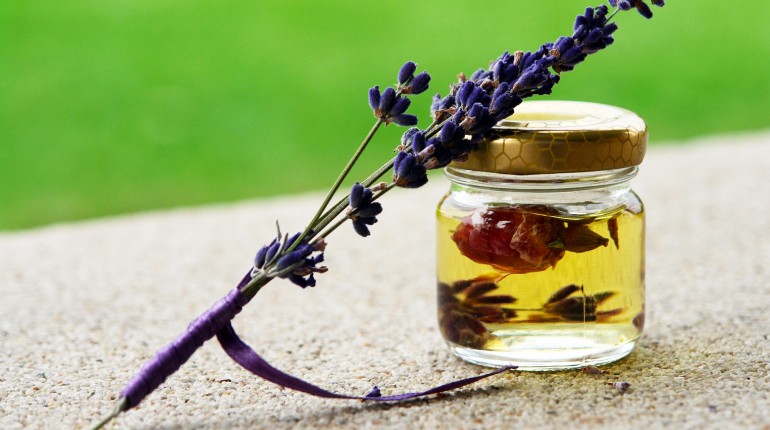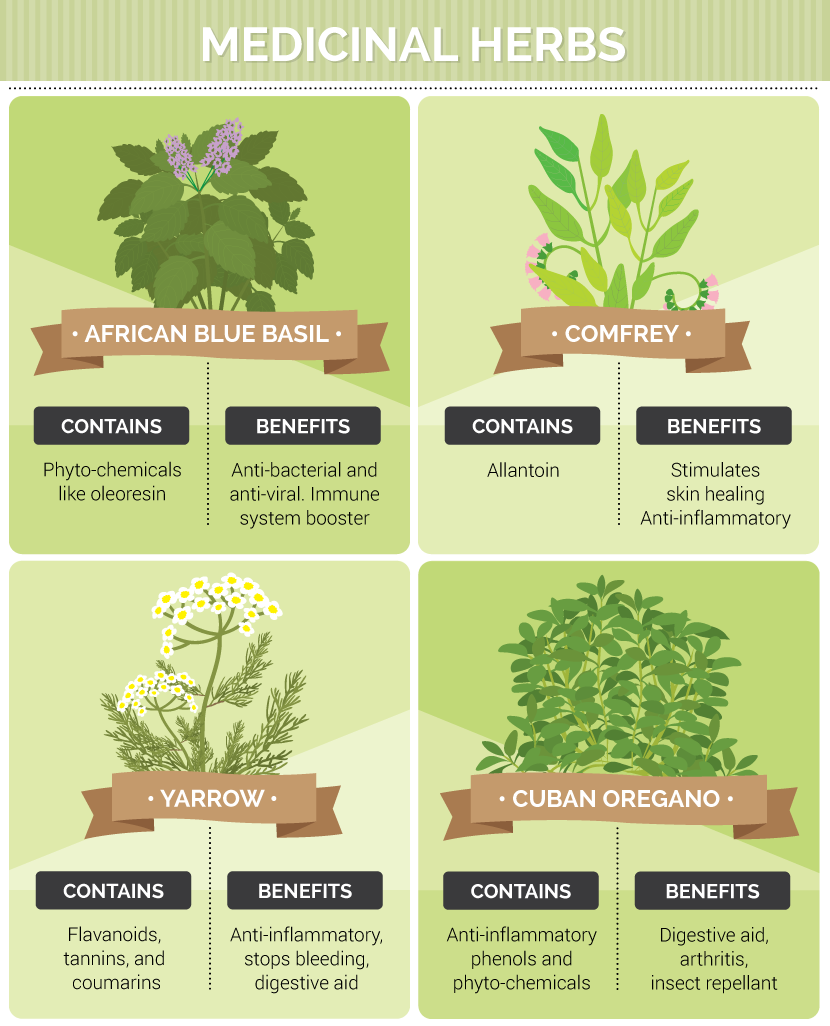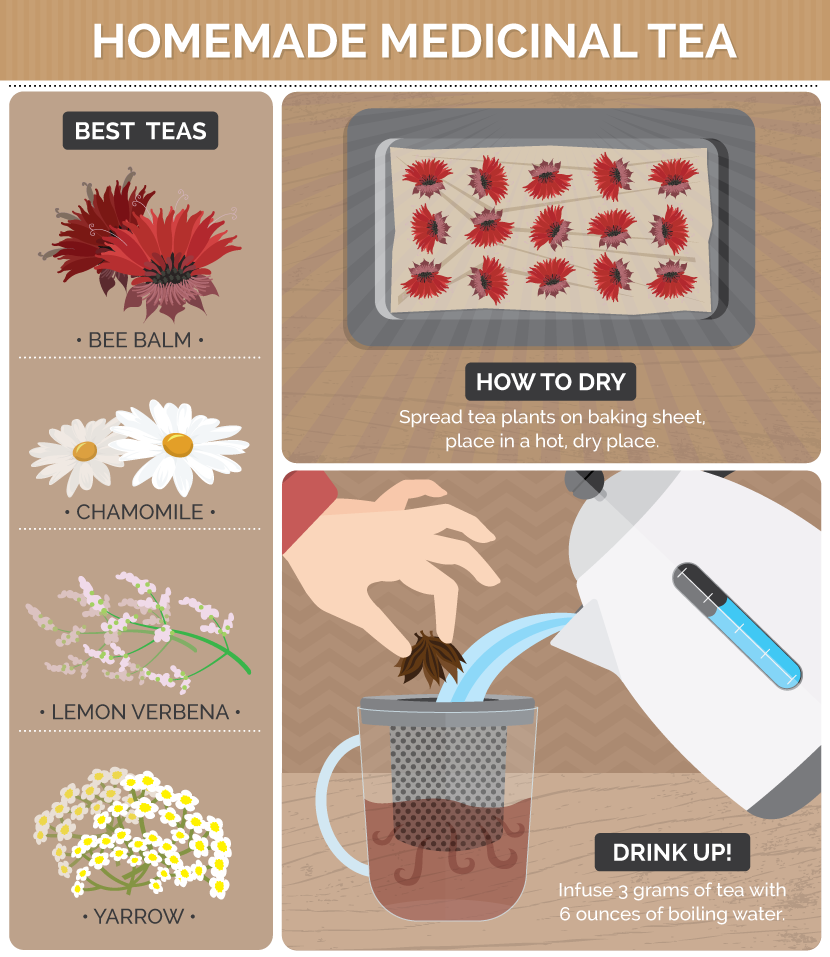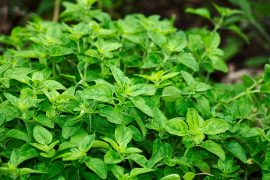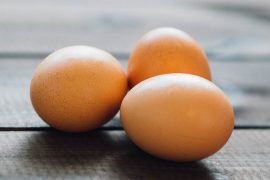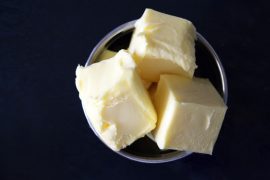Growing medicinal herbs and plants at home is a must for every herb garden enthusiast. If you love to garden, the apothecary attitude of medicinal herbs may be a perfect transition for you! Use the ideas in this article to create an herb garden that is both delicious and provides positive health supplements.
With great herbs, you can make great anti-inflammatory, immunity-boosting ointments and teas. With a little know-how, you and your family will be headed for better health.
Plant Your Own Tea Garden
Making homemade tea lets you control the quality and strength of the herb. Medicinal tea recipes have been passed down through the ages, mainly through word of mouth. Some recipes call for only the leaves, and some call for flowers; following the right recipe can put centuries of tea therapy at your fingertips.
Drying plants for tea it best done when it’s hot and dry in the house. Greenhouses or even the attic can be great drying locations. Simply throw your herbs on a cookie sheet lined with parchment paper. The more surface area exposed to moving air, the faster they will dry.
Not all medicinal plants are meant to be eaten, but the teas below are commonly used and safe to ingest. No matter what method you use, once you begin growing and drying your own tea, you will swoon for a sip of lemon verbena, which evokes the taste of a cool summer rain.
Best Teas to Make at Home
All these teas should be added to a cup of hot boiling water and steeped for a few minutes using a tea infuser. You can purchase empty tea bags if you don’t like using infusers.
Bee Balm: 1 tsp dried bee balm (all parts of the bee balm are edible); used to calm your nerves or as a digestive aid
Chamomile: 2 tbsp dried or 4 tbsp fresh chamomile flowers (use the chamomile flowers only); used as a sleepy-time tea
Lemon Verbena: 1/4 cup lemon verbena leaves or add some ginger and lemon juice; used as a soothing sore throat remedy
Yarrow: 1 tbsp of fresh yarrow leaves and flowers or 1 tsp of dried yarrow leaves and flowers; used to ease body aches and pains
Herbs for Good Eats and Good Health
Many herbs are simply delicious. Here are some of my favorites for the dinner table.
Caprese salad is brighter and more colorful when you use Blue African Basil leaves. Top off each slice of tomato with a colorful leaf, a chunk of fresh mozzarella, and a drizzle of olive oil and balsamic vinegar…voila!
Cilantro is the taco-makeover herb! Tuck a sprig of cilantro into your taco or mince it and add it to a jar of store-bought salsa for a fresh-from-the-garden taste!
Rosemary wakes up any steak or hearty red-meat dish, especially if it is paired with a potato (sweet, white, or red).
Thyme makes any soup vibrant, especially cream-based soups or those that use mushrooms. Add fresh or dried thyme liberally to any poultry dish for a robust splash of flavor!
Simple Herb Salves
Many herbs can be used to make salves. A salve is a healing ointment or a balm. The simplest, most effective salves are those that use readily available ingredients from your pantry or garden. Salves are simple to make, and they have good healing properties, such as soothing scrapes and burns. The following components can be used in any basic salve:
- Oil (olive oil recommended)
- Herb/herb mixture (*Infused in the oil if called for)
- Beeswax
- Shea butter/cocoa butter
- Arrowroot powder (optional)
Infusing Oil With Herbs
Using a canning jar, place a 1:1 volume ratio of the dried or fresh herbs in olive oil. Store the oil in a dark cabinet or cupboard for 1 to 2 weeks. Strain out the solids in a sieve, using the back of a spoon to push out all the extract you can into the oil.
Be mindful of which base oil you choose. You’ll want to choose oil that stays fresh for long periods of time. The best choices are olive oil, coconut oil, or almond oil.
Whether you use them for sore muscles, inflammation, or infections, homemade salves are a great way to treat your body naturally. Here are some great salve recipes for you to try.
Three Healing Salves
- The Sore Muscle Salve: 1½ tsp ginger root powder, 2 tbsp cayenne powder, 12 drops of peppermint oil, 10 drops of eucalyptus oil, and 4 drops of clove oil.
This salve will produce a warming rub for sore, achy muscles.
- The Anti-Inflammation Salve: 1 cup of yarrow, rosemary, and lemongrass, with infused olive oil added to the salve base mixture. (Infuse fresh or dried yarrow, rosemary, and lemongrass, or add 5 drops of lemongrass oil to the infusion first.)
This salve will help reduce inflammation from bruises or scratches.
- The Infection Fighter Salve: 1 cup of lavender, comfrey, plantain (a wild edible), chamomile, and yarrow-infused olive oil.
This is a great salve when you something is red and inflamed and looks like it might be getting infected.
You can mix and match your ingredients and oils to experiment and learn what you like on your skin. As mentioned above, the arrowroot powder is optional. It adds a starch to the oil and acts as a soothing agent.
Medicinal plants and herbs are loaded with anti-microbial properties and healing substances, and they can even help with digestion. That is just the beginning of the healing and health properties they offer. Tapping into the world of medicinal herbs and plants will opens up new areas of learning and beckon you to dive further into your plant and herb knowledge. You will find a plethora of available projects, including infused waters, tinctures, and more complex salves and teas for healing and good health.
Disclaimer: Tea gardens, infusions, and salves are all folklore remedies. Do not substitute this advice for medical advice from your health care professional.
Reprinted with permission from our friends at Fix.com/blog
About the author:
 Karen Lynn writes for Lil’ Suburban Homestead, previously blogging for Frugal Families.com. She has been featured on several popular blogs and is a Homestead Bloggers Network Contributor, as well been featured by Scratch Magazine. Karen and her husband love to garden with raised beds and a small “upcycled” greenhouse. Furthermore, Karen and her husband are beekeepers, and keep backyard chickens.
Karen Lynn writes for Lil’ Suburban Homestead, previously blogging for Frugal Families.com. She has been featured on several popular blogs and is a Homestead Bloggers Network Contributor, as well been featured by Scratch Magazine. Karen and her husband love to garden with raised beds and a small “upcycled” greenhouse. Furthermore, Karen and her husband are beekeepers, and keep backyard chickens.

